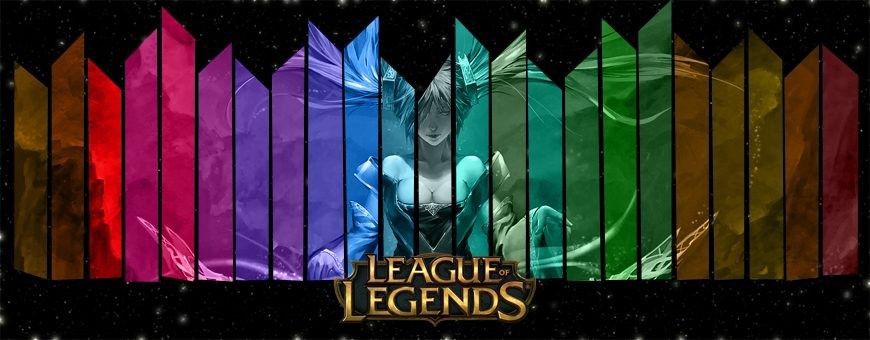
As a veteran player within the League of Legends community, I have spent a considerable amount of time playing the game. I got hooked back in Season 2, or the year 2012, and have been playing off and on since then. With this experience, I have noticed a distressing phenomenon. The community experience has become more toxic toward new players over time. The growth of the E-Sports scene with the LCS, LEC, LCK, and others have spurred this game into the public eye, and this should come with the benefit of bringing an influx of new players. However, these new players are often exposed to a less than ideal experience early on, and they end up moving on to something else. In the short term, this kind of churn doesn?t matter much, but like any business, it?s not sustainable long term. So, how do you fix a community that has become one of the most toxic gaming communities, without breaking it in the process?
Attempted Fixes
Riot Games hasn?t sat idly by this whole time. They have made a number of attempts to combat this issue such as increased suspension and ban rates. They also implemented a system of chat restrictions that help to limit the number of messages a recently toxic person can send. These are solid changes, but the underlying issue isn?t being addressed. One of the most innovative ideas that Riot put into place was the early surrender feature. This allowed a team to surrender at 15 minutes, instead of the original 20, with a unanimous vote by all 5 players. This saves players the headache of waiting 5 additional minutes when a game is severely out of hand. Other initiatives have included better matchmaking and temporary queue restrictions for players dodging before a game starts.
So while Riot has made valid attempts to combat the problem, it still persists, so how do we fix it? Well, before we can get into that, we need to have a deeper understanding of what causes the issue in the first place. In my experience, the negative reactions of players are caused by two distinct triggers. The first of these is related to the sunken cost fallacy. The sunken cost fallacy states that people who have already invested a certain amount in something will continue to do so regardless of whether the outcome will change. Think investing time in developing a new Unity Asset, and then realizing 75% of the way through that another better asset has been approved for sale. Instead of scrapping the project for something with more potential, you are likely to continue due to the time already invested. This applies to league in a very direct way.
Games often range from 20 to upwards of 45 minutes. This makes the average game length one of the longest within the competitive landscape. For comparison, Overwatch game length typically ranges from 15 to 25 minutes, and Starcraft 2 games range from 3 to 25 minutes. So, by comparison, the time invested in a LoL (League of Legends) game is at a minimum 50 to 60% longer than other competitive options. This time investment becomes the crux of many toxic encounters within the community. If a game has spiraled out of control, and 4 of 5 players vote to end the game at 15 minutes, one player can force an additional 5 minutes of game time. Another issue arises if a duo (two players queuing together) refuses to agree with their teammates on when to end a game. The difference being that in this situation they can force game length to upwards of 30 or 40 minutes.
While the fix for this problem is far from obvious, it seems as though changing the unanimous vote to a 4/5 vote option would be a good start. While I understand the concept behind Riot?s choice to not do this early on, overtime is has become evident that it would benefit the majority of players to not put the entire decision-making process in the hands of one person. The second change would be to have duos counted as one vote using the same system programmers use to determine if something is true. In addition, in these games, the majority should be changed from 4/5 to 3/4. It would work something like this.
Duo Vote System
Yes + Yes = Yes
Yes + No = No
No + No = No
This allows the duo partners to still have a say, but not enough that they can single-handedly force a game to continue. In making two small changes, Riot would be able to address a major sticking point within games that leads to less than ideal outcomes.
The second trigger is having players leave a game or stop playing midway through. This happens less the higher a player?s ELO is, but in lower ranks, this is a consistent problem. Riot has made some changes that allow games to be remade if a player fails to connect, which alleviated a longstanding problem, however, it failed to address mid-game leavers. Now, what I am going to propose as a fix would come with a caveat that would ABSOLUTELY need to be implemented simultaneously in order to function well.
Riot should implement a system of reduced ELO loss due to players who leave a game midway through. Now, I know someone out there is saying, ?but what if a duo uses this to climb by leaving games they are losing?. In addition to the reduced ELO loss, a system which overrides this in the case of one half of a duo leaving would need to be implemented. So, it would look something like this.
Reduced ELO Loss System
Situation 1:
A player who is not part of a duo within the game leaves the game and remains disconnected for X (to be determined) time.
Result: System grants reduced ELO loss to the remaining 4 players when the game ends, but applies a full ELO reduction for the player who left.
Situation 2:
A member of a duo queue leaves the game and remains disconnected for X (to be determined) time.
Result: System grants reduced ELO loss to the remaining 3 players who are not part of the duo, but applies full ELO reduction to the duo players.
I believe that these two small fixes would reduce the amount of rage within the community, and in turn, reduce the considerable toxicity. Will it completely fix the issue? No. But, over time with more and more implemented changes it?s possible that Riot could get it back under control. Before E-Sports and League of Legends can go truly mainstream, we need to get the community to a point where new players feel welcome. In the end, those new players are going to carry this torch forward when we finally drop it.


